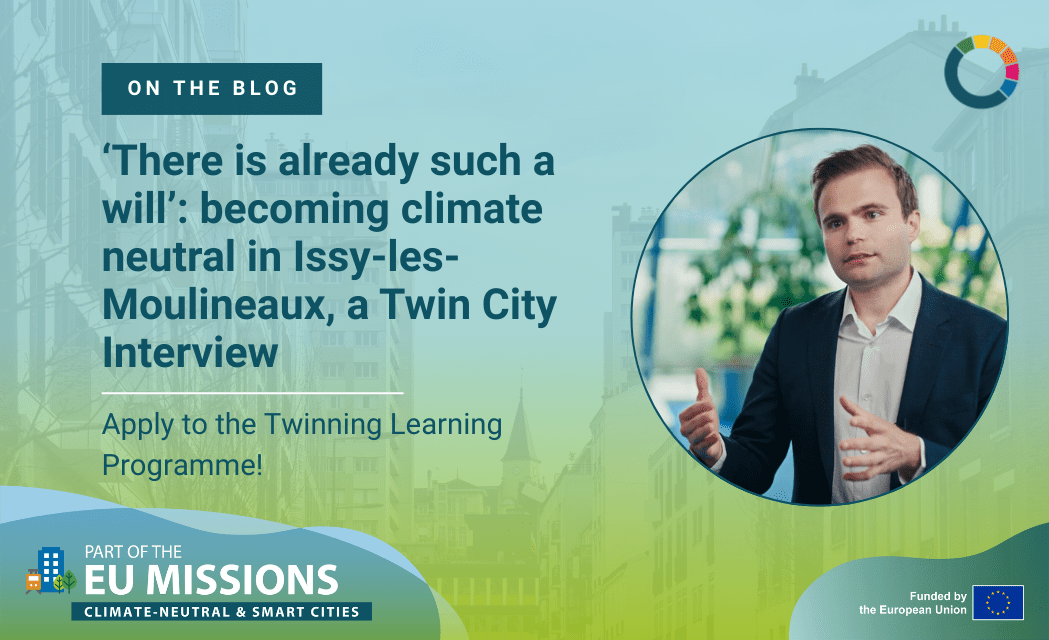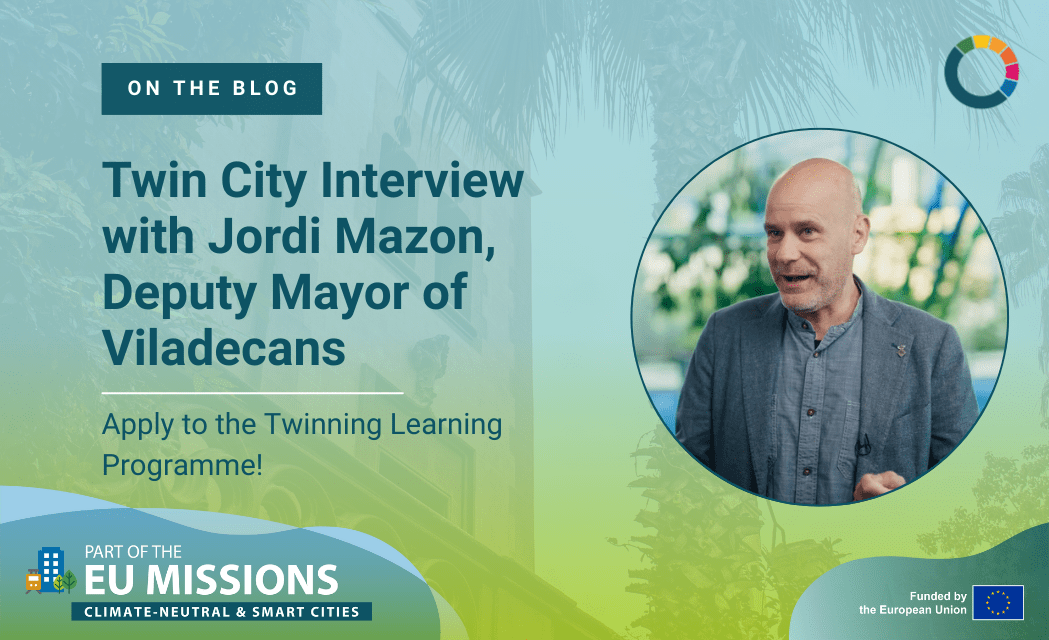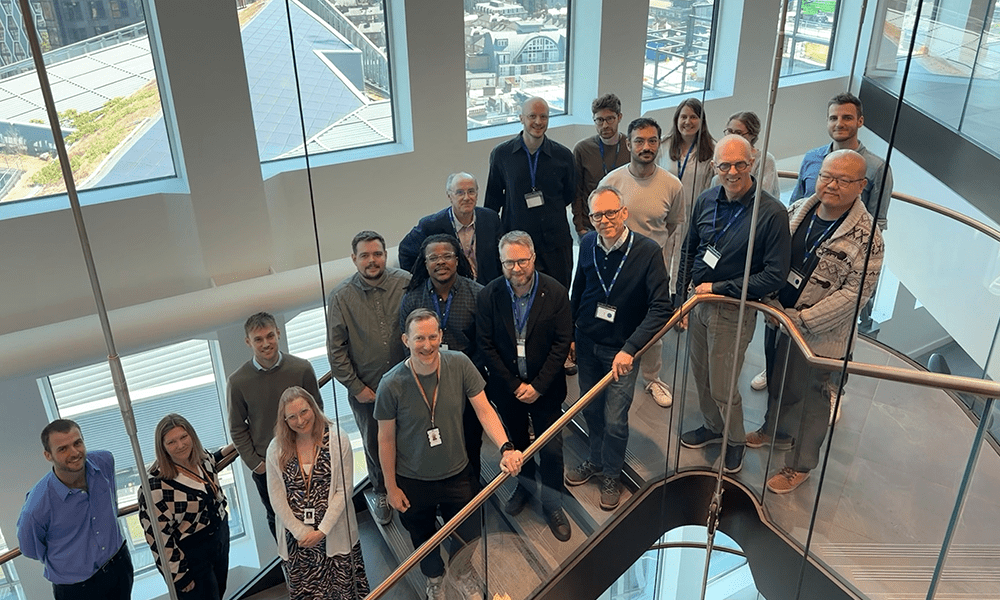The Twinning Learning Programme is a peer-learning initiative bringing together Twin Cities with Pilot and Mission Cities. It is built on mutual exchange and focuses on learning and replication efforts. The programme has a practical focus on implementing systemic transformation methodologies and innovative approaches on the journey to climate neutrality.

The Twinning Learning Programme is a 12 to 20-month peer-learning initiative of the EU Cities Mission, facilitated by the Mission Platform, currently managed by NetZeroCities. It promotes the exchange of knowledge, experience, and good practices between selected Twin Cities and Mission & Pilot Cities.
In September 2023, September 2024, and January 2025, the first three rounds of the programme brought together 78 Twin Cities (37 in the first round, 18 in the second and 23 in the third) to engage in structured learning and collaboration with cities from the Pilot Cities Programme.
Starting in November 2025, the programme enters a new phase. Building on feedback and lessons learned from earlier rounds, a new group of Mission-minded cities (meaning beyond the 112 EU Mission Cities) will be selected to join the programme. This time, they will collaborate with Mission Cities over a 12-month period, with knowledge exchange focused on priority climate actions identified in Mission Cities’ Climate City Contracts.
Deadline for applications: 12 September 2025 at 17:00 CEST.
BE INSPIRED BY TWIN CITIES’ STORIES
‘There is already such a will’: becoming climate neutral in Issy-les-Moulineaux, a Twin City Interview
Luca Fayoux-Cinelli is the deputy director in charge of [...]
Twin City interview with Jordi Mazon, Deputy Mayor of Viladecans
Jordi Mazon is the deputy mayor in Viladecans, a [...]
Different Cities, Common Ground: Westminster’s Twinning Story
Author: Ayden Maher In the heart of London, Westminster [...]
WHAT DOES THE TWINNING LEARNING PROGRAMME OFFER?
The Twinning Learning Programme is an exciting opportunity for cities to drive their climate ambitions forward, supported by expert guidance and hands-on learning. This programme not only helps accelerate progress towards climate neutrality but also fosters innovation and long-lasting partnership between cities.
The programme follows a clear three-step structure and gives cities the flexibility to adapt the pace and content of their exchanges to their needs.

Kick-off event and roadmap definition
The journey begins with an inspiring kick-off event with all Mission and Mission-minded cities, followed by an online workshop to define the learning needs and process. By the end of this phase, cities will have designed a Twinning Learning Roadmap, tailored to the needs and expertise of paired cities.
In-person site visits
This phase focuses on deepening collaboration through two co-designed site visits.
- The visit to the Mission City provides a first-hand look at the practical implementation of a selected climate action.
- The visit to the Twin City enables exploration of local replication potential, activation of the local ecosystem, and mutual feedback between cities.
Both visits aim to encourage real-world knowledge exchange and adaptation to different local contexts.

Twinning Learning Programme site visit in Cologne.
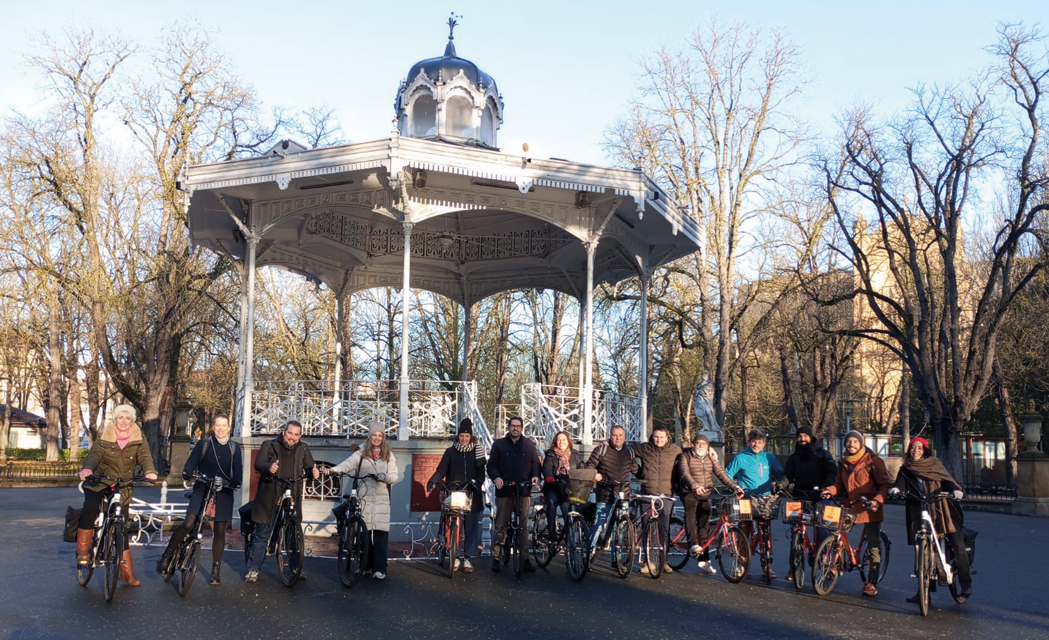
Twin Cities Soria and Cologne visit the Pilot City of Vitoria-Gasteiz.
Transferring knowledge
In this final phase, cities consolidate what they’ve learned. Through a series of tailored online sessions, the Twin City formalises their experience in a Replication Plan, co-designed with the Mission City, capturing actionable insights and addressing the specific needs and barriers identified throughout the programme.
Expert support
Each pair of cities is supported by a dedicated NetZeroCities consortium partner, known as a Twinning Learning Programme Facilitator. Facilitators have a unique role in ensuring that the Twinning Learning Programme modules are implemented successfully while adapting them to the cities’ needs and capacities. By identifying learning interests and structural barriers, they help spark cooperation that can continue well beyond the programme, inspiring impact at the local level.
